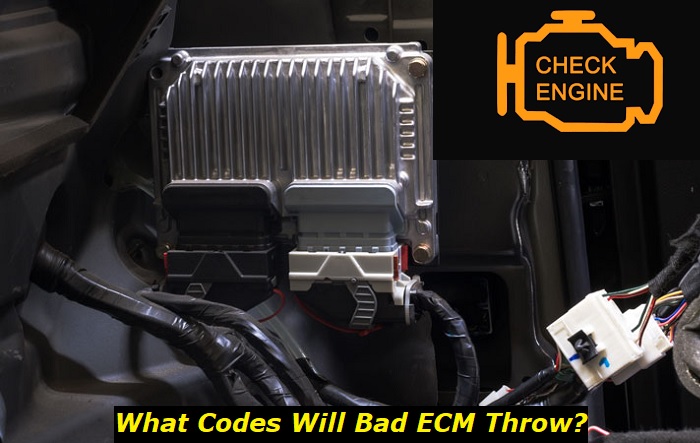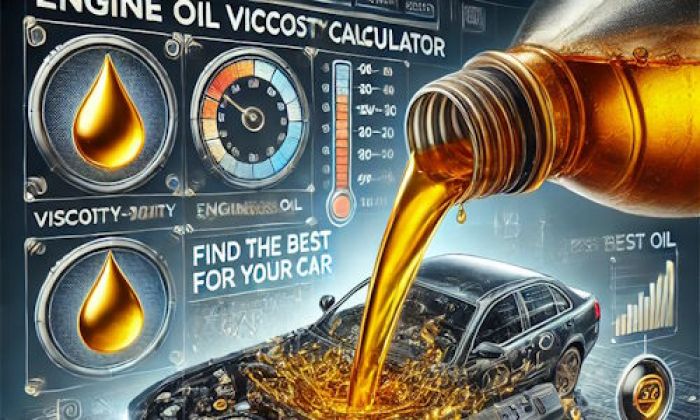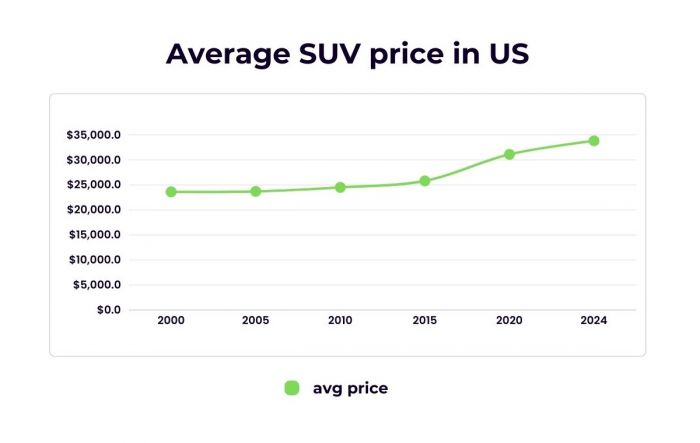Your ECM may throw all different kinds of codes when it malfunctions, but there is no special code that would mean that the ECM is faulty, so all those codes are misleading. Sometimes, it may lead to problems with vehicle inspection - even mechanics in dealerships may not understand at first that the culprit of all the problems is exactly the ECM.
Codes of the faulty ECM highlights
- Difficulty level:High
- Needed scan tools:Professional scan tool
- Additional equipment:No other tools needed
- Timeneeded:20-30 minutes
- Price in a shop:$200 - $350
- DIY repair:Impossible

Bad ECM - what codes can it throw?
Actually, the bad ECM may throw all kinds of codes starting with airbag problems and finishing with timing issues or fuel supply problems. It may register engine misfiring, tell you that the exhaust is not correct and the catalytic converter is dying, or just throw random codes now and then without sticking to its choice the next time you start your vehicle.
You shouldn't concentrate on the codes, in this case, because they are absolutely misleading and can't offer you anything. If you keep inspecting the car and looking at those codes, you will most likely spend some money on new sensors and other parts but the codes will go on showing up one by one.
So, there is no special code that the bad ECM will throw. It depends on the area in the ECM that is affected or just on the glitch that affects the module right now.
What are the signs of the faulty ECM?
Before you spend hundreds of dollars on inspection and repairs, you should check if the ECM is not glitching. If it is, all the repairs will be unnecessary until you repair or replace the control module. Unfortunately, it's very hard to diagnose this part and it's not much easier to replace it.
I've seen numerous combinations of symptoms that accompany the faulty ECM. Here are some of the most common ones:
- random codes and the check engine light going crazy every time you turn on the engine;
- when you read codes, you can't understand the problem, it's changing every time you restart the engine;
- also, the ECU may throw one code but the unit that it considers faulty is working absolutely well;
- the engine may start working harshly, consume more fuel, and be less efficient during acceleration;
- random cylinders may stop working because of problems with ignition or fuel consumption.
In a modern vehicle, ECM sends signals to ignition coils, and also to injectors and commands them to work with proper timing. When the ECM is faulty, the timing of these mechanisms changes and the engine may not work at all or may work harshly. Of course, you will get bad gas mileage and other problems with the engine.
If your vehicle experiences these symptoms, you should check the ECM. Or you better have it checked in the dealership because the inspection is not that easy.
How can you check the ECM?
It's not that easy to understand that the ECM is malfunctioning. Usually, car owners start suspecting this after they deal with the third code in a week and change one sensor after another. Then they think that it would be nice to make sure that the ECM is working properly and throwing correct codes.
But an average mechanic from an all-purpose repair shop isn't likely to have the needed tools and skills to check the ECM. So, it's a good idea to go to the dealership. They have much more opportunities for checking this module.
Here's how this may happen:
- they use professional scanners to see the codes that the simple OBD2 scanner will not see;
- they use professional software developed exactly for your model and even the year of the vehicle;
- they register other symptoms and signs that can show the more and tell them about the problem;
- also, they may even replace your OEM ECM with another one to check if the problems are gone;
- they use computer software to test the ECM and analyze the possible issues.
After an hour or two, you will have certain information about the problem with the engine control module. If this problem is actually torturing your vehicle, they will offer to replace the ECM. You can try to repair it in some other place, but it will still cost you a lot of money and the module may not be brought back to life, anyway.
ECM repair - is it worth the money?
In most cases, repairing the ECM after it fails is too complicated. The system may have been affected by water or high temperature and this means that after you replace a certain part, some other unit in the module may start malfunctioning.
Usually, ECM lives much longer than the engine, so car owners don't need to invest money in these parts. But sometimes, bad things may happen and the ECM may fail. If this happened to your car, you may want to repair the module, but replacing it is almost always the best solution.
Is ECM replacement a good choice?
You may think, OK, I can just buy and install the new ECM and keep driving. But you should remember several important concerns:
- the new ECM should be exactly the same as in your vehicle;
- the software should work with your engine type, so it's hard to find an affordable used option;
- new ECMs may cost you a fortune and you will need to wait long to get them;
- installing a new ECM is pretty hard - you will need to reset everything and make sure the module works;
- also, it's important to check that the wiring works well because sometimes these problems may be connected to wiring issues.
So, it's obviously not the DIY task to replace the ECM or to check if it works well. You will certainly need some professional help. I recommend having the ECM inspected in the dealership. Even if you don't want to pay for the repair there, you can at least have the vehicle diagnosed properly and understand what exactly you need to replace or repair.
Can you still drive with the bad ECM?
It's an extremely bad idea to drive with a bad ECM because the module can eventually fail fatally and even affect your engine. If you suspect that the ECM is malfunctioning but your car can still drive, the best thing you can do is to drive directly to the dealership or to the trusted repair shop. If the module fails totally, you will have to pay for a tow truck or invent some other way to have your vehicle towed.
But if your vehicle drives just well and just shows the check engine light and some error messages, you can still drive. Of course, it's a bad idea to ignore this, you will still need to check everything and plan the repair. But for now, you can drive and not be worried that the engine can fail or something.
However, if the engine works harshly, malfunctions heavily, and consumes twice more fuel than usual, you should consider stopping the vehicle and turning the engine off. This may also be a sign of other problems like timing off or fuel supply issues, so before you keep driving the car it's always important to make sure that the engine is not going to be affected.
What can affect the ECM in your vehicle?
There are quite a few things that can destroy or affect the ECM and make you pay a lot of money to cope with the issue. Here are some of them:
- water damage - this is quite common for vehicles with bad ECM placement, like Ford Focus where it is located under the left front wheel arch liner;
- heat damage - if something is heated up heavily near the ECM when it's placed under the hood, the problems are inevitable;
- coolant or oil leaks - again, if the ECM is under the hood and the coolant or oil leaks on it, it will eventually fail;
- mechanical damage - very often, ECMs are damaged in car crashes, and even minor accidents can sometimes be fatal for them;
- wiring issues - bad connection can lead to short circuits or other problems with electrical signals, so they can kill the ECM or just make it work incorrectly.
I've listed just the most common problems that can affect the work of your ECM. Of course, this is not the entire list of issues and you should be careful at all times when you are inspecting the car. It's easy to diagnose the problem wrongly and to invest a thousand or two in something that has been working properly.
About the authors
The CarAraC research team is composed of seasoned auto mechanics and automotive industry professionals, including individuals with advanced degrees and certifications in their field. Our team members boast prestigious credentials, reflecting their extensive knowledge and skills. These qualifications include: IMI: Institute of the Motor Industry, ASE-Certified Master Automobile Technicians; Coventry University, Graduate of MA in Automotive Journalism; Politecnico di Torino, Italy, MS Automotive Engineering; Ss. Cyril and Methodius University in Skopje, Mechanical University in Skopje; TOC Automotive College; DHA Suffa University, Department of Mechanical Engineering






Add comment